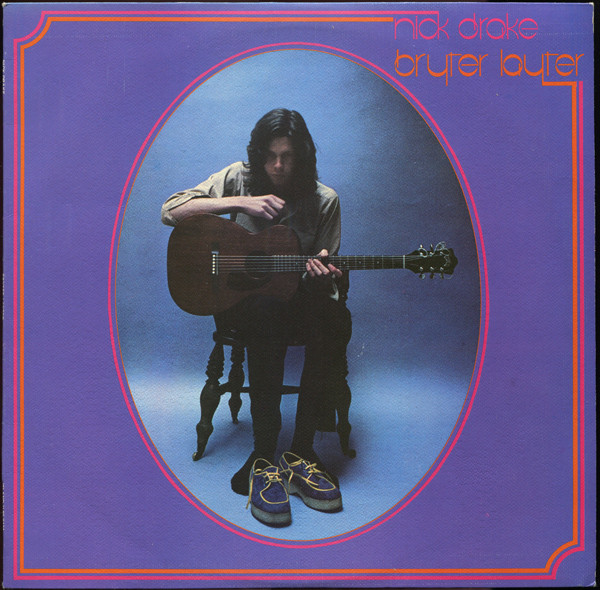This my follow up to my recent post on Nick Drake’s debut album. My goal with that post as with this one is to examine the question of whether there are good sounding, even audiophile worthy sounding copies of Nick Drake albums available these days that are not so expensive as to make them prohibitive.
Fortunately, in the case of Five Leaves Left, the answer was a somewhat muted “Yes.” You can read what I learned about the 2 pressings of that album that I had to work with, as well as my conclusions about them here. With no plans to dig any deeper into Five Leaves, I turned my attention to Bryter Later and wondered if I could come to offer collectors similarly good news with Drake’s sophomore album.
What began this project was a copy of Bryter Later that I used to own and recently sold off. That copy, a US OG pressed at Sterling, always sounded like a dud to me. One day I was feeling particularly frisky and I pulled it out and gave it the Marie Kondo treatment, quickly relegating it to the sell pile. Later I posted the record on IG and made the bold proclamation that the US pressings of Bryter Later were mastered from dub master tapes, and the pushback was immediate and vocal.
So I decided I should give the US OG’s of Bryter a second chance, but not before picking up a UK pressing that I hoped would convey the master tape sound that I imagined the UK OG’s had, but that I’d so far been too frugal to confirm. This new copy, a palm tree label reissue with A2/B2 stampers sounded pretty good but not SO good that I didn’t grab another US OG of Bryter when one came up for sale at a good price.
Armed with two promising and relatively affordable copies I was ready to dive into Bryter Later in a way I’d not been able to before. Below are some of my observations and conclusions. Hopefully they’ll be helpful to those of you seeking your own copy.
One such conclusion is that Bryter Later is that it’s a difficult record to play back. The music contains a lot of muted tones and the presentation of instruments can feel soft and distant. Also, the quality of the recording, or perhaps the style of this recording and the degree to which it succeeds, varies from track to track.
Nick’s vocals for instance, already soft and somewhat muted, can have a tendency to get lost in the mix. On side 2, with the song “Fly” Nick’s vocals jostle with John Cale’s Viola, Dave Pegg’s bass and the string arrangements (which sound overdubbed). It’s not the most heavily populated of arrangements, but it feels crowded nonetheless, and I find myself craving more air and space in the soundstage. Conversely, on the following track “Poor Boy,” Nick’s voice is suddenly front and center, anchoring the song as the drums, piano, horn and backing vocals drift in and out of the mix smoothly, clearly and with a satisfying musicality.
Overall, both the US and the UK pressings handle Nick’s voice well and both copies have a reasonably good top end, but the UK has more bass and fleshes out the lower midrange MUCH better, thus giving Nick’s voice more fullness and presence. In fact, the UK just gives this music more weight and presence overall and as a result is simply more musical and pleasing to listen to. As I write this I am listening to the US pressing and finding myself eager to put the UK pressing back on again.
I can’t say whether the mastering engineers who cut these two records were working from a first generation tape, or not. What I will say is that the differences in sound on these two copies does not appear to me to be because one engineer had a better master tape to work with than the other. In that regard, these records sound pretty similar.
But the fact that the UK has plenty of bass and the advantages that go with it, while the US is sorely lacking in that department, gives the UK palm tree pressing a SUBSTANTIAL leg up. Perhaps one day I’ll get a chance to hear a UK OG and see if more of the master tape sound shines through the way I’d like it to on these copies.
In the meantime, I’m keeping this UK pressing and letting the US Sterling pressing go. This UK palm tree pressing is not, I’d like to think, the be all end all of copies of Bryter Later, but it will have to do for now.
